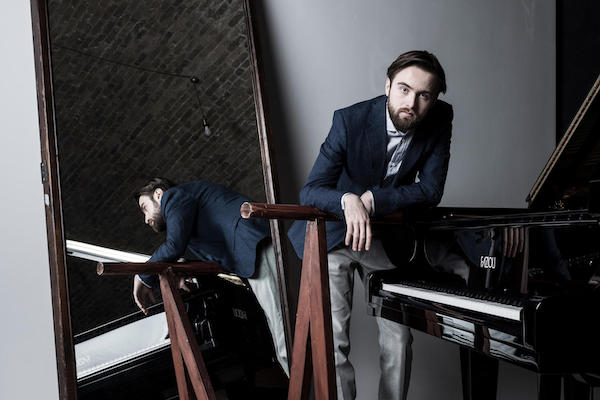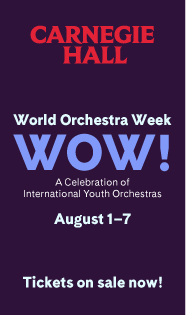Russian pianist Trifonov finds a welcoming Carnegie crowd
While the Russian army was shelling the largest nuclear power plant in Europe, Carnegie Hall’s Executive Artistic Director Clive Gillinson stepped up to a podium to introduce Thursday night’s concert. He explained that, once Russia attacked Ukraine, Carnegie and the Vienna Philharmonic jointly decided to disinvite conductor Valery Gergiev and pianist Denis Matsuev from participating in last weekend’s concert series because they were prominent and vocal supporters of Russian ruler Vladimir Putin. Gillinson went on to point out that the decision was based on individuals, not the Russian people as a whole, and not only mentioned the obvious importance of Russian musical culture but that many Russian artists no longer lived in that country.
In a way, it was to disarm any possible objections to Thursday night’s performer, pianist Daniil Trifonov. It worked, as Trifonov was greeted with warm applause as he strode onto stage. Most of the crowd was likely the same as those who would have attended this recital when it was originally scheduled for the fall of 2021. Trifonov suffered an injury, though, and a later illness forced two cancellations.
He was ready Thursday, with a dense, complex program of music by Szymanowski, Debussy, Prokofiev, and Brahms — physically and psychologically demanding — that led to what must be an incredible rarity in classical music: a Trifonov concert followed by multiple standing ovations, yet no encore.
Even without one, the concert felt artistically complete at the very end of Brahms’ Piano Sonata No. 3, which comprised the whole second half. Symphonic in style, form, and duration, the sonata felt like the final chapter of a sprawling novel that managed to bring myriad threads to a satisfying conclusion, a cogent final word after a first half that whipsawed through aesthetic and emotional extremes.
The performance opened with Szymanowski’s Piano Sonata No. 3, followed by Debussy’s Pour le piano and Prokofiev’s Sarcasms — three pieces that demand not just technique but varied touch, clear thinking and clear listening, not to mention the expressive challenges of Debussy’s luminous, sensual joy surrounded by music that often seems to be describing different states of instability.
The familiar in-concert Trifonov quality of pushing at the edge of the music was there, which for him goes hand-in-hand with a sense of spontaneity. Szymanowski’s sonata begins with immediate vitality and then almost instantly careens into a fluid hyperactivity. Like a choose-your-own adventure, the pianist seemed to follow the clues, switching mood and direction and following that path until something new caught his eye.
Rather than scattered or chaotic though, this was musically and expressively clear. There is concise thematic material in this piece, built around gestures and harmonies, and Trifonov always made this clear. As transitional as the music is—and it is like feeling a strong wind and trying to grasp it with a hand—it is still a sonata, with a form underneath all that activity. One heard this come through like bursts of enlightenment.
Transitional was the theme of the first half. The music was roughly contemporaneous in that it came from a period when music was flying off the cliff of romanticism but had not yet found landing points. Debussy was more stable, but no less revolutionary, in this, and while Pour le piano was a welcome change in mood from the near-mania of Szymanowski, the performance was just as intense. And with the piece’s richer sonorities and greater emphasis on harmony, the feeling was weightier.
Again, Trifonov found spontaneous moments. The Prelude skittered along, looking for moments of major-key brightness. Even the Sarabande had a nervous energy to it, and the Toccata was fast and powerful. It is always good to hear musicians bring out the muscularity and rough edges in Debussy, and Trifonov’s playing harkened back to earlier, important interpreters of the composer, like Samson François.
Trifonov has recorded Sarcasms and has played selections as encores. The music not only seems suited for him—both intellectual and emotional, combustible, technically brilliant in a way that is both admirable and exciting — but felt right for the moment. Though from before the Soviet era, the sound has the special quality of being intensely about something without ever giving a clue as to what that something might be — it stares fervently and unblinking at the listener.
The playing was scintillating. Trifonov’s hands rebounded off the keyboard, sardonic, brittle, gentle, spiky. He played as if things like bar lines, tempos, rhythms were too rudimentary, gathering the music together phrase by phrase, gesture by gesture. The faster segments, like the Allegro precipitato, were like hurtling train, controlled only by the rails underneath. The Precipitoissimo was near malevolent, like the music was on the verge of playing a cruel joke.
After intermission, the Brahms sonata was a complete contrast both as a choice and in Trifonov’s manner. It felt as if he worked his way through psychological knots in the first half, and was centered in the second. Still, this was Trifonov; the opening chords in the Allegro maestoso seems to be larger than normal, extending farther into space. The pianist brought out the exalted quality in the music but, in the development section, still pressed Brahms’ orderliness to the limit.
In the second movement, Trifonov used both hands to pull out the psychological complexity in the music, with a very free left-hand bass line going its own way against the chiming chords in the right hand. As with the Szymanowski, one heard the formal means of the sonata, the construction and shape of the music, and how the notes gave the pianist a vehicle for his own expressive journey.
The Scherzo was again often at the edge of control, the Intermezzo was mysterious. The Finale was exuberant, colorful and also unsettled, less about answers than questioning everything that came before. Still, Trifonov brought the concluding pages to a settled point. Again, no encore, but this was a deeply artistic performance, and after saying so much nothing more was needed.
András Schiff plays Mozart, 8 p.m., March 31 carnegiehall.org

